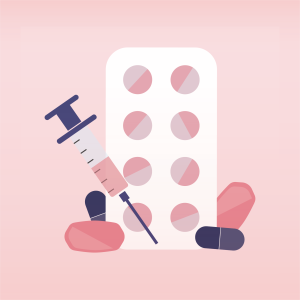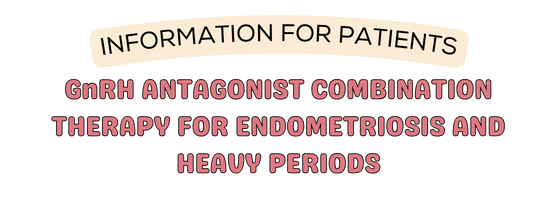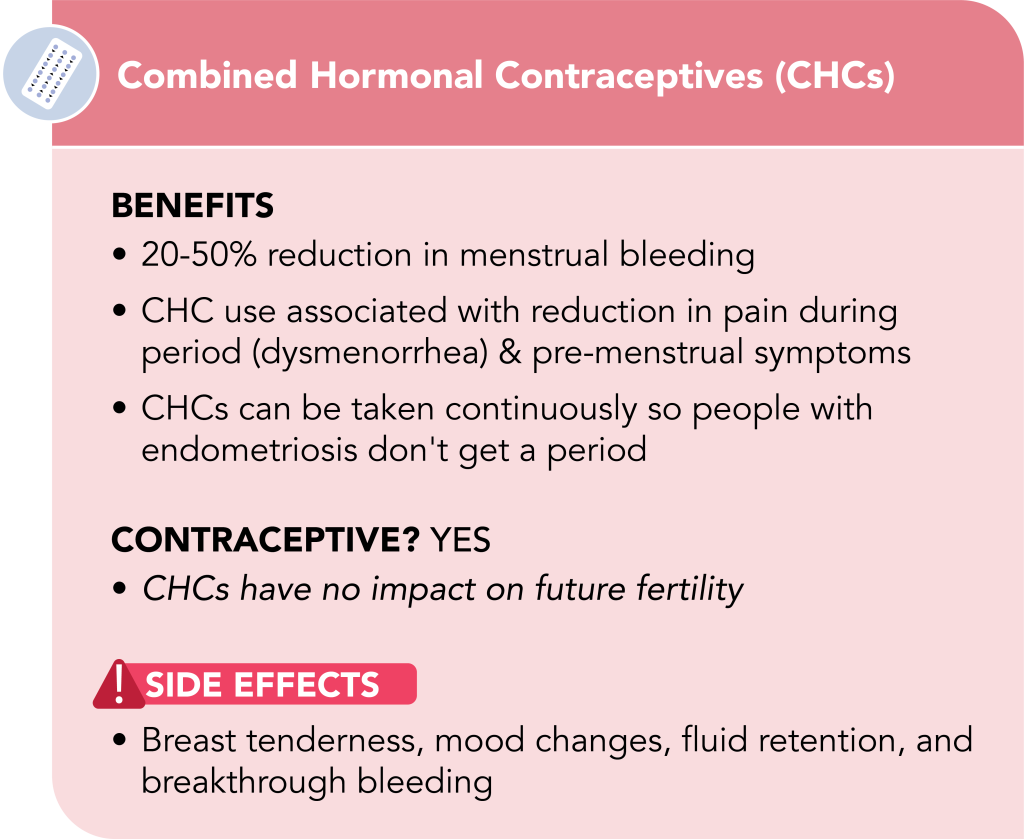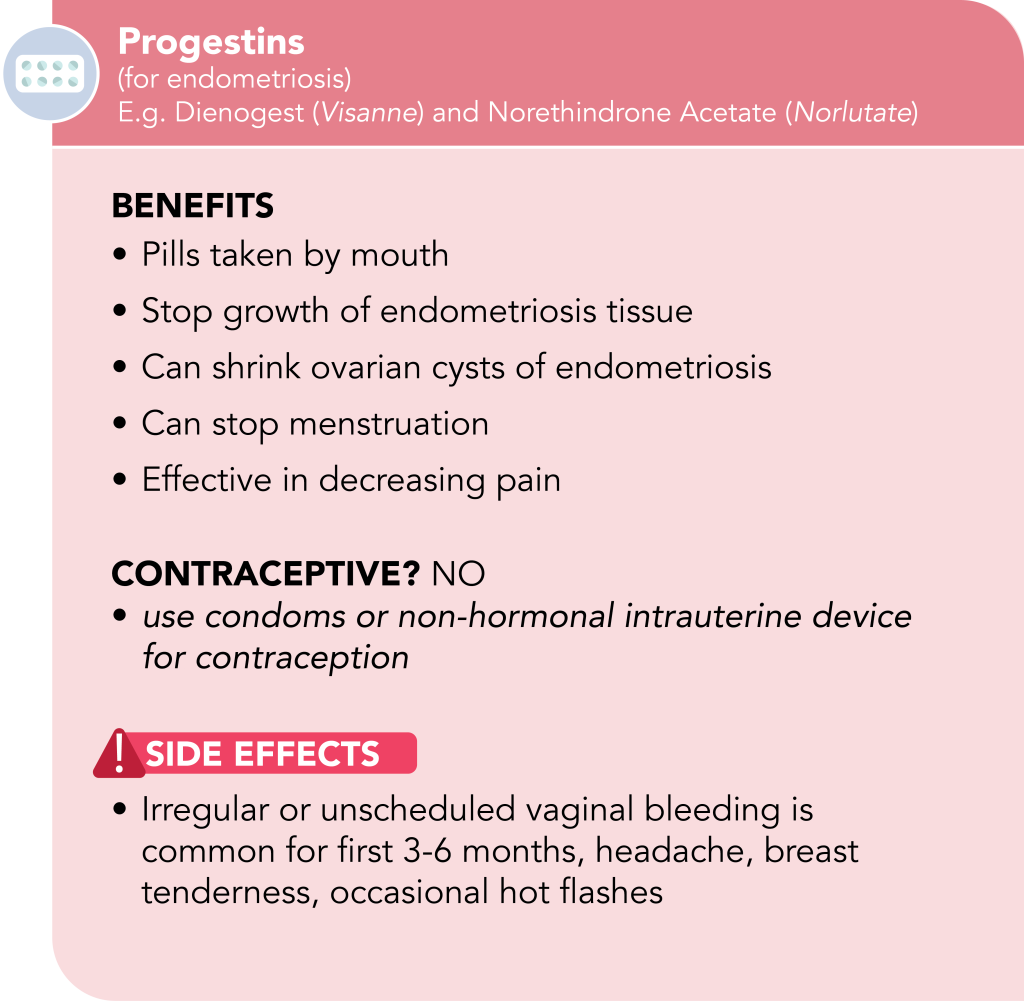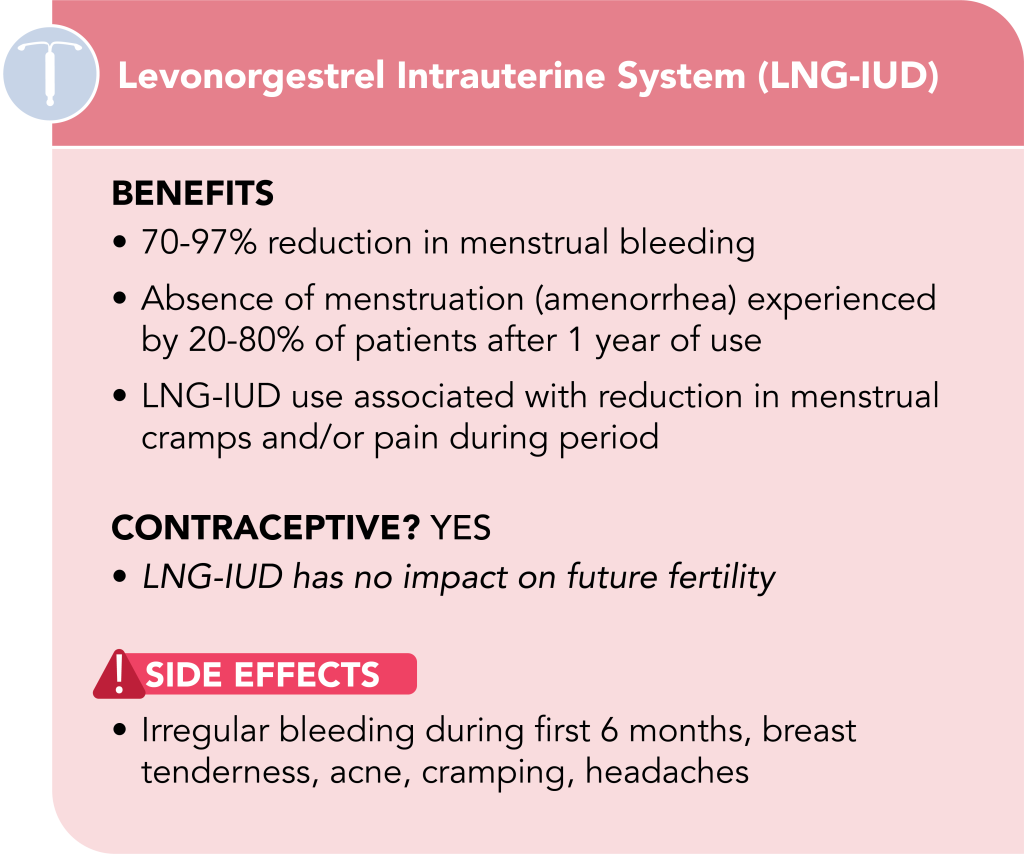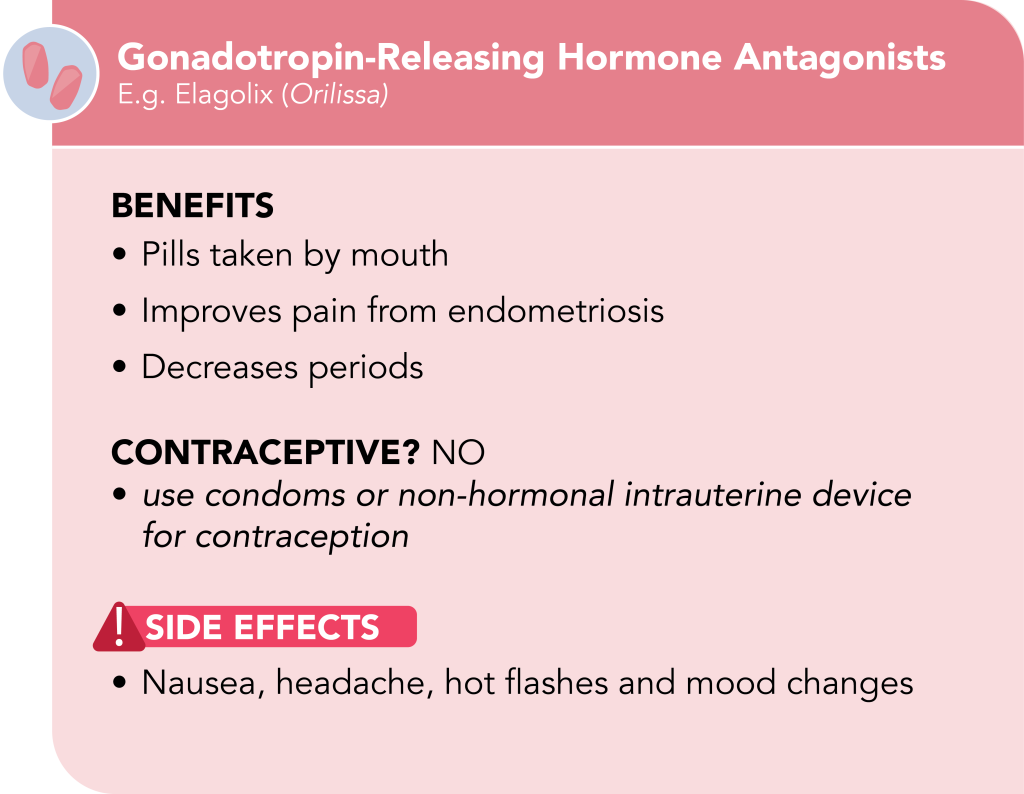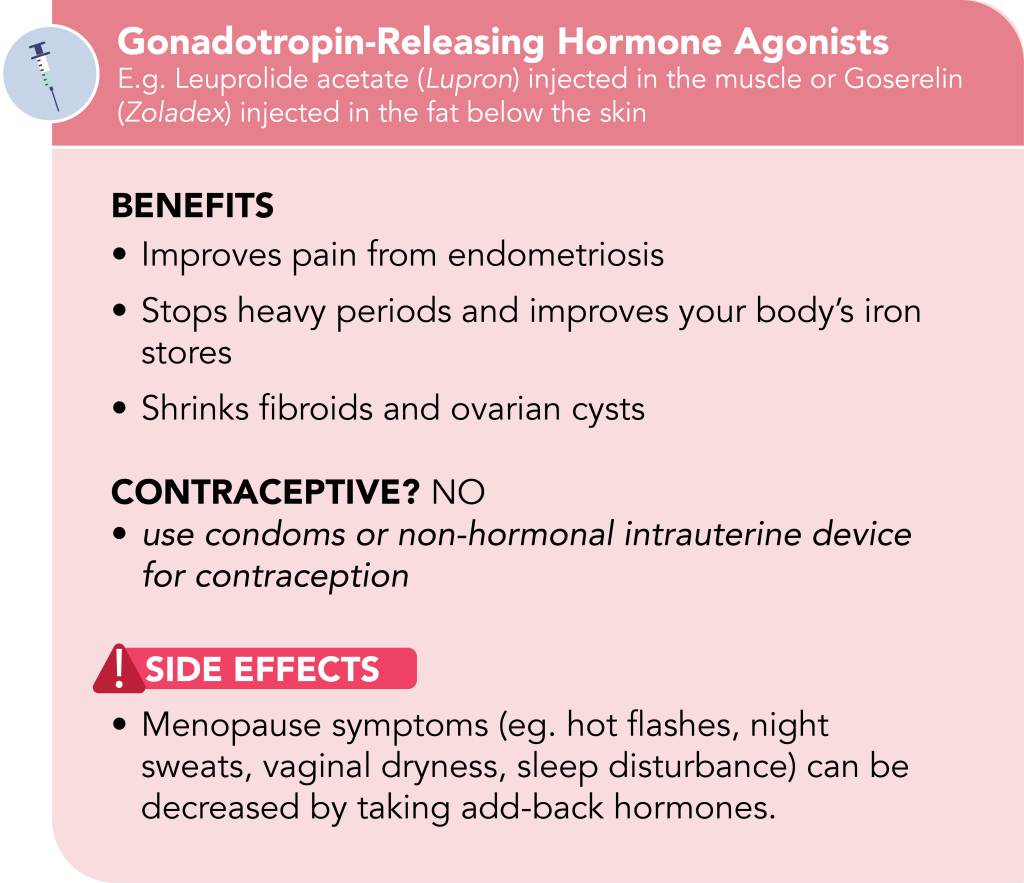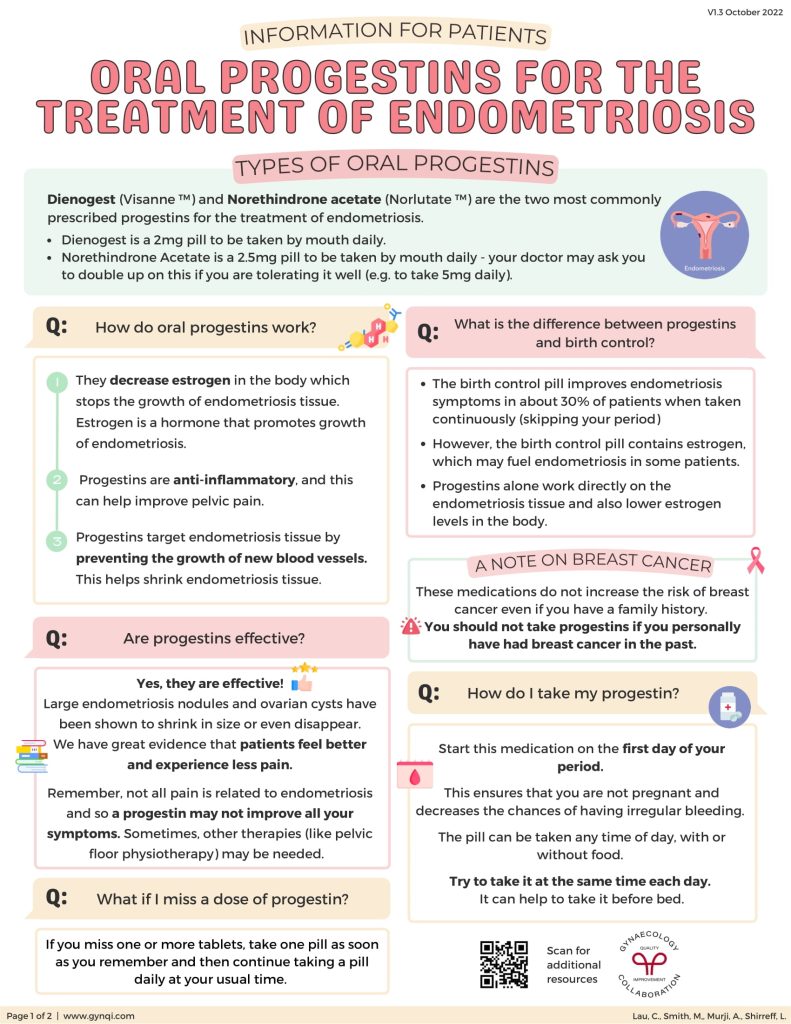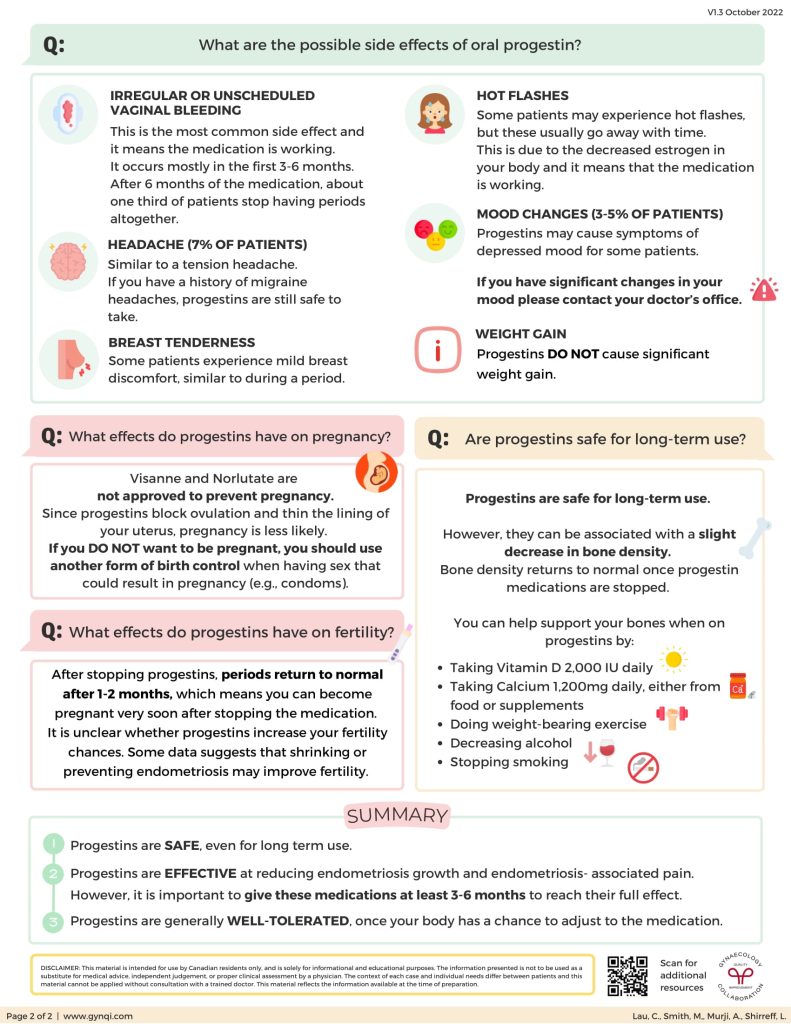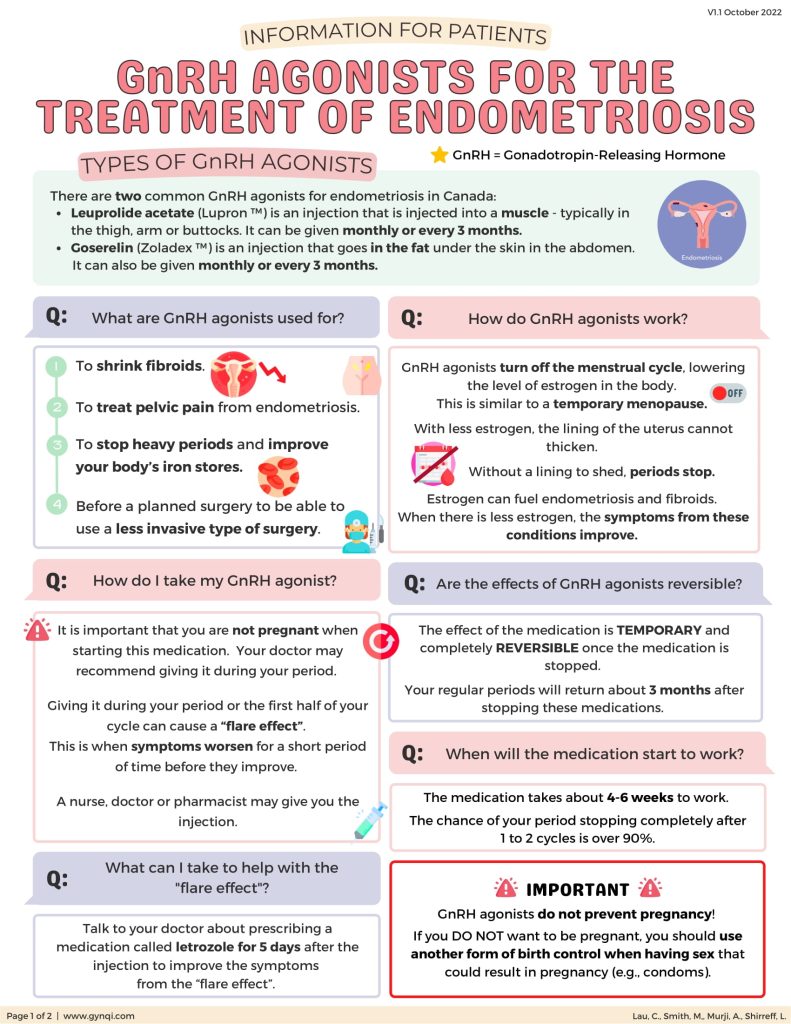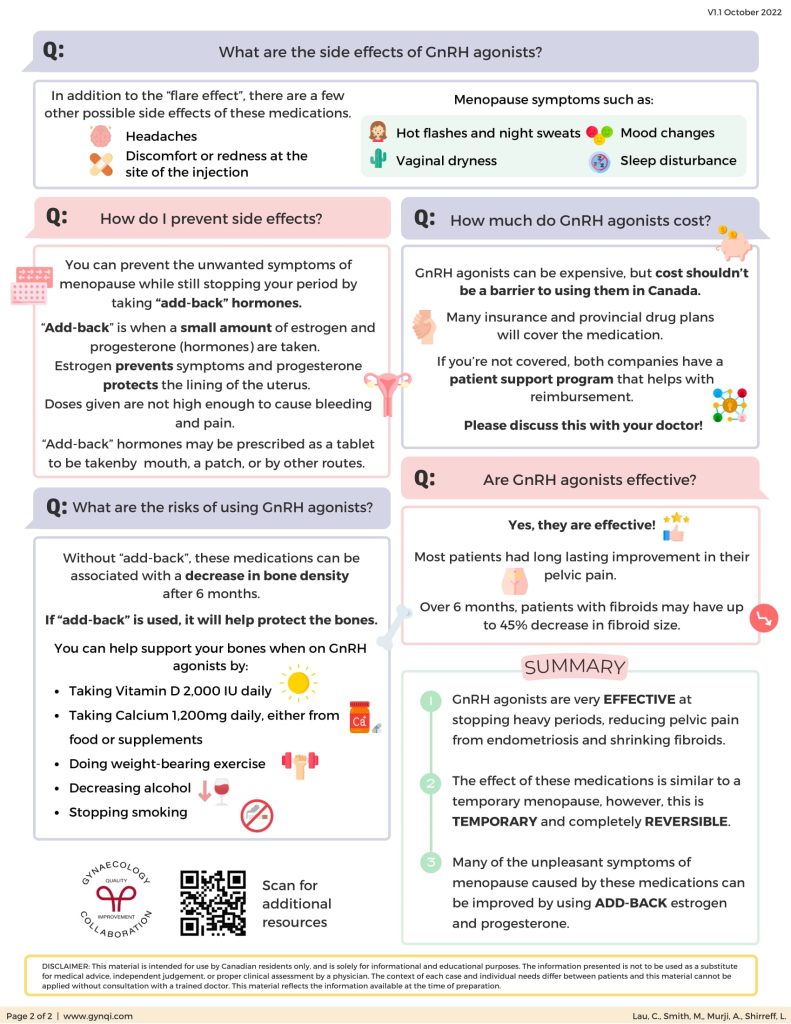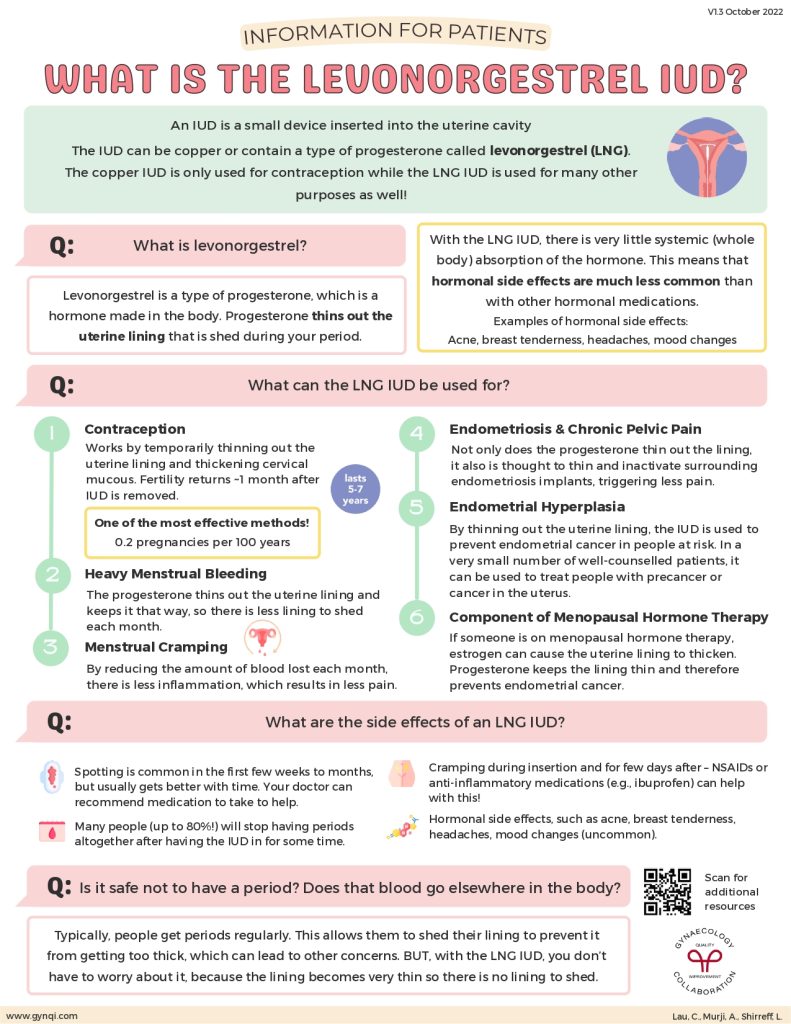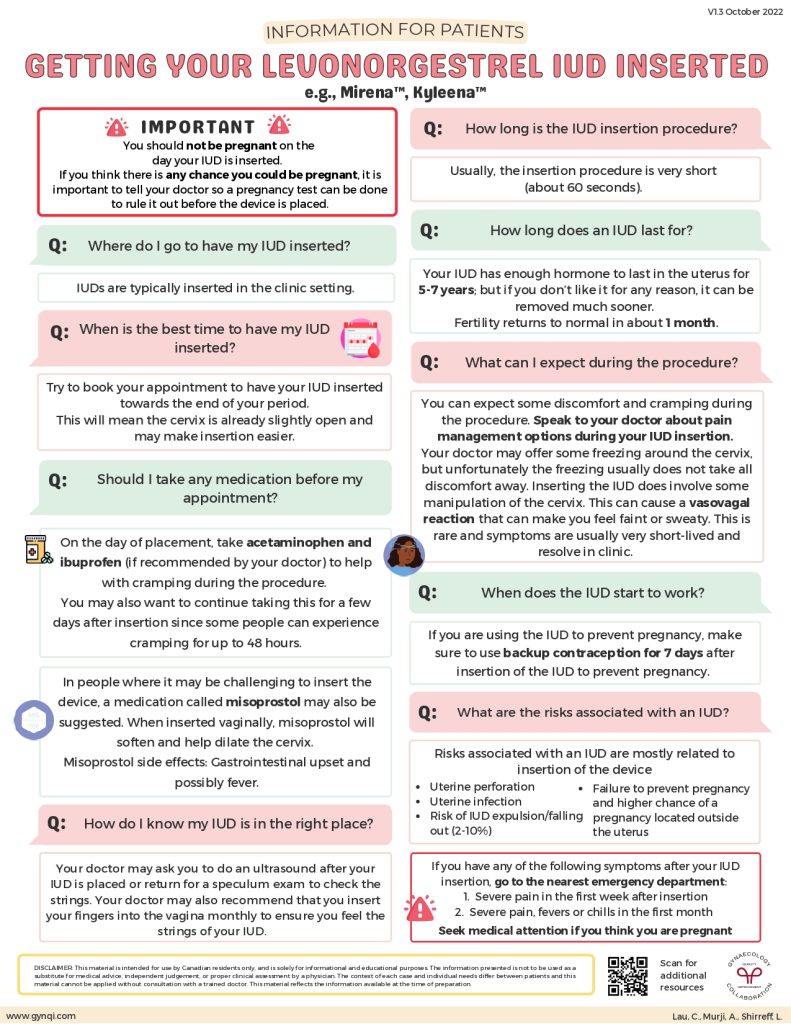Complete Guide to Endometriosis
Endometriosis is a chronic condition that affects 1 in 10 people with ovaries. It can cause pain, infertility and ovarian cysts. For general information on endometriosis, access our patient handout.
We are pleased to provide resources below that were created by endometriosis specialists. Our aim is to provide you with trusted information on the treatments for endometriosis.
Medical Treatments for Endometriosis
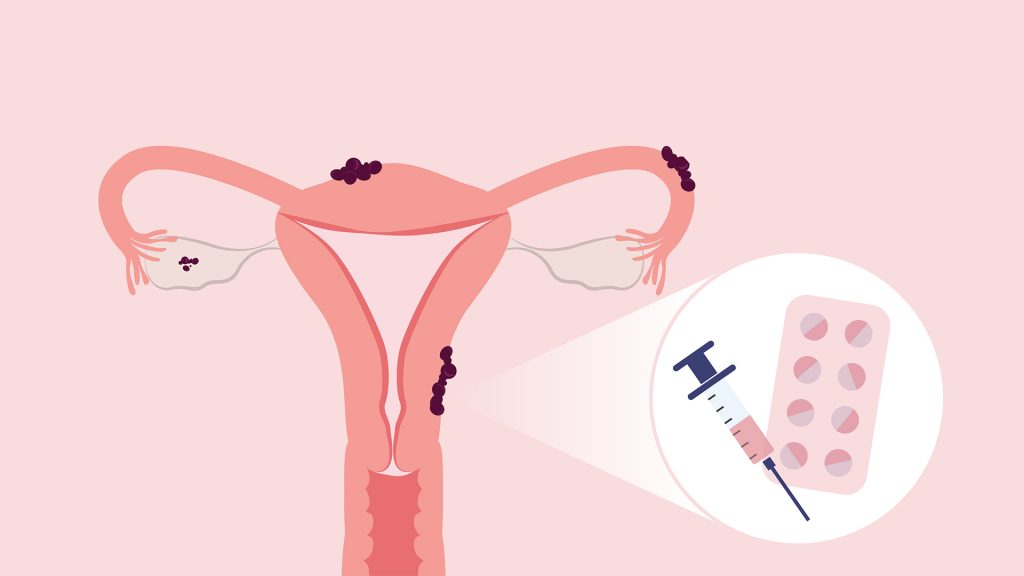
Medical therapies are the cornerstone of endometriosis management and have been recommended as first-line treatments. Common treatments include the use of:
- Birth Control Pills
- Oral Progestin
- Progestin IUD
- GnRH Antagonist
- GnRH Agonist
Endometriosis is a chronic condition that has a very high chance of coming back. Even after surgery, medical therapies are recommended to prevent disease recurrence in those not trying to get pregnant. There is no one-size-fits-all solution.
How to Choose a Medical Treatment for Endometriosis
After discussion with your healthcare provider, the medical therapy you choose will depend on:
- Your Symptoms
- Your Need for Contraception
- Other Conditions you may have (e.g., fibroids, adenomyosis)
- Your Medical History
- Your Side-Effect Profile
- Costs
Shared decision-making is most important, so be sure to engage your healthcare provider in these discussions.
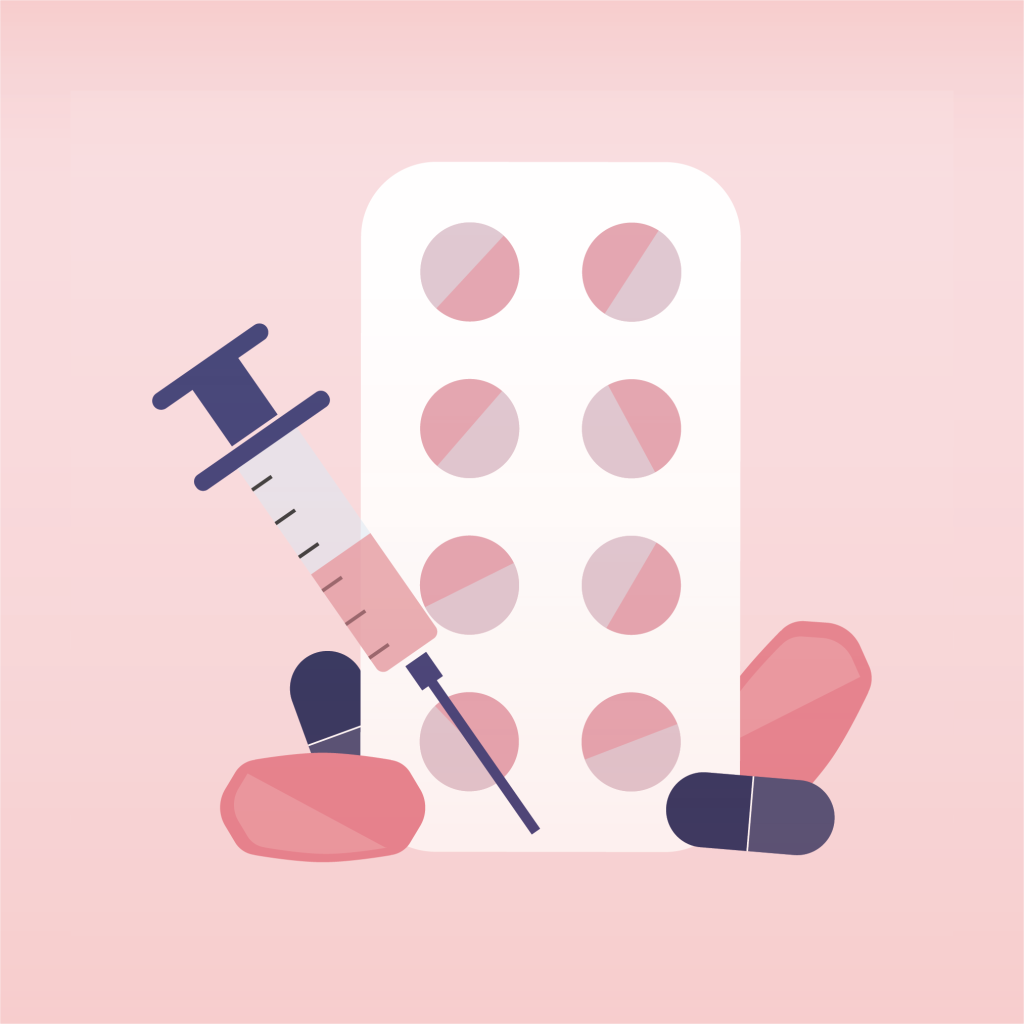
Resources
Coming Soon...
Surgery is an important aspect of endometriosis treatment for some people. We are working to create patient education tools tailored towards surgical management. Stay tuned for exciting developments!

